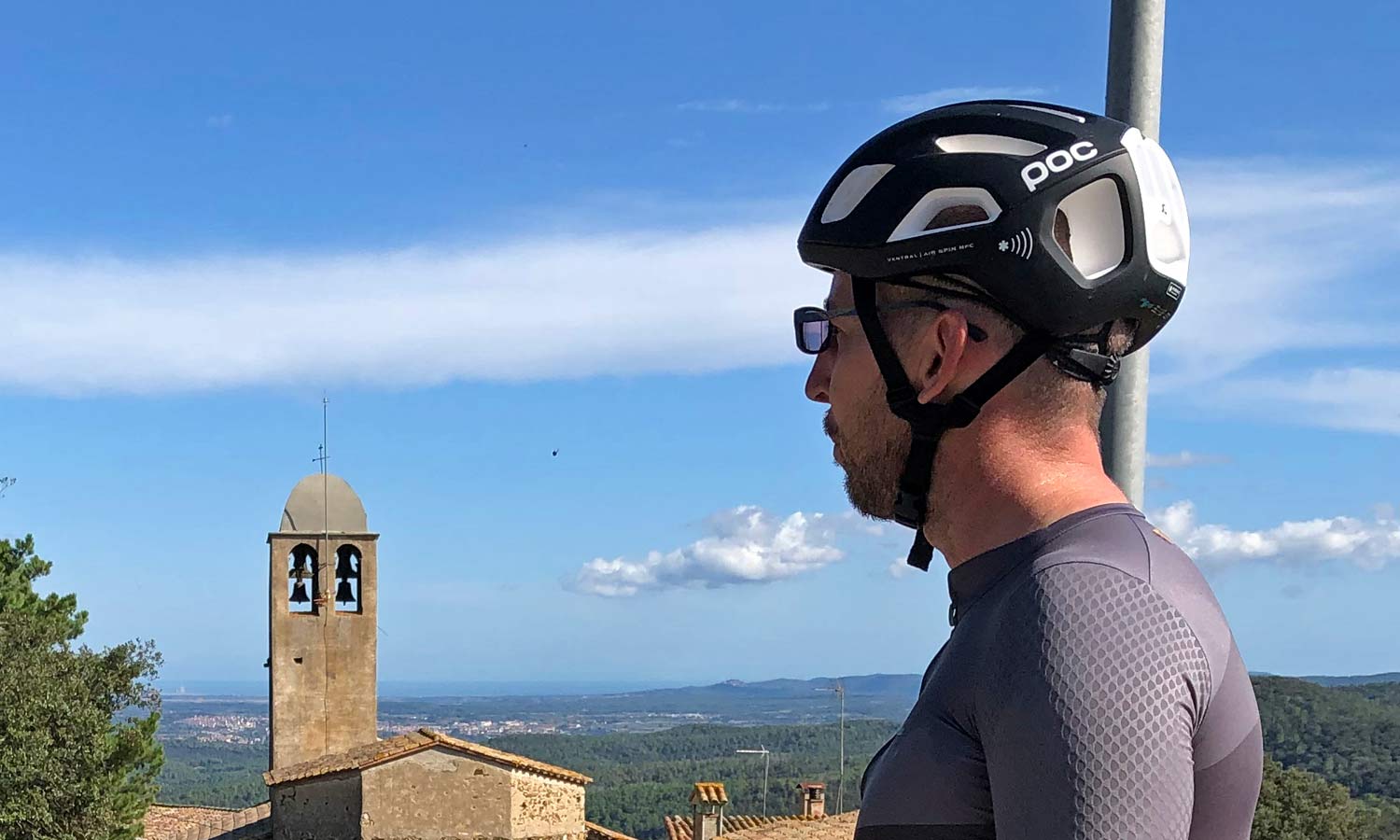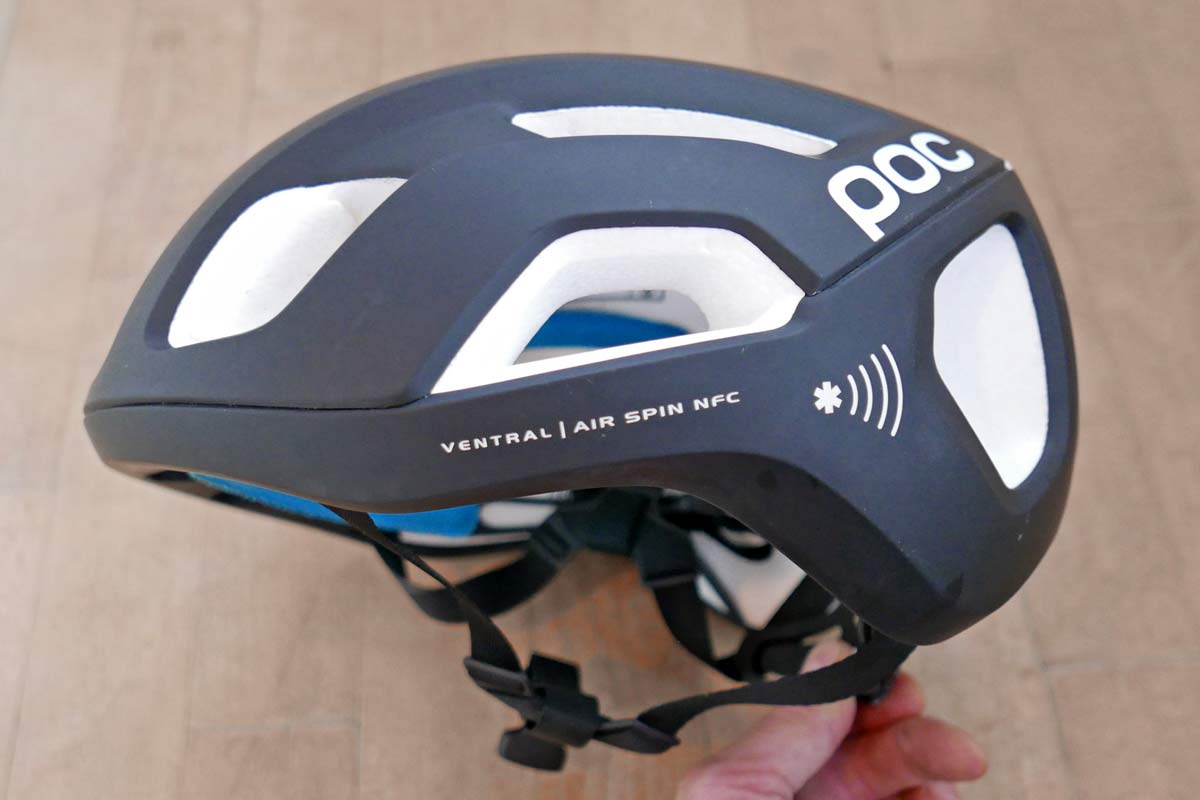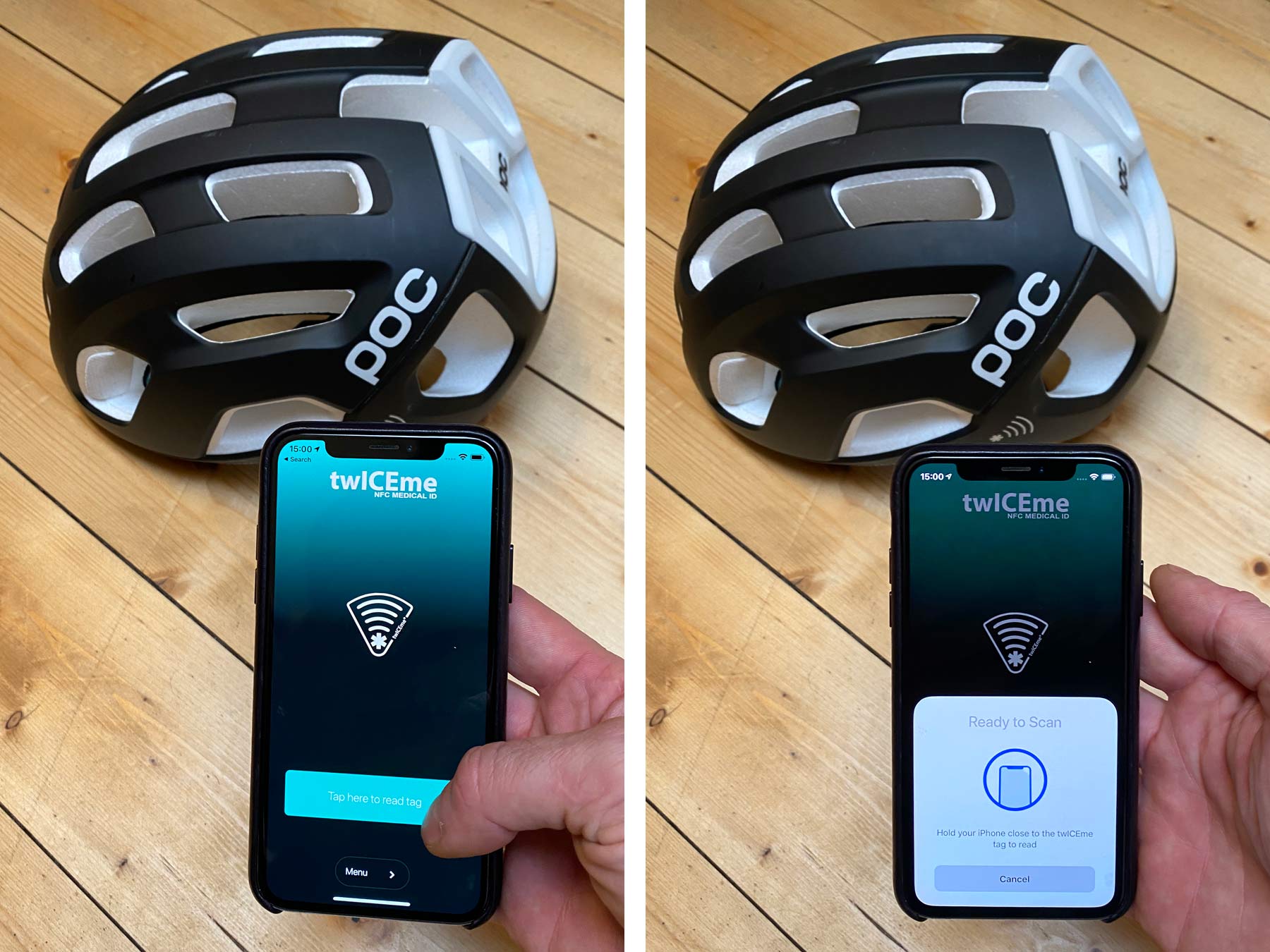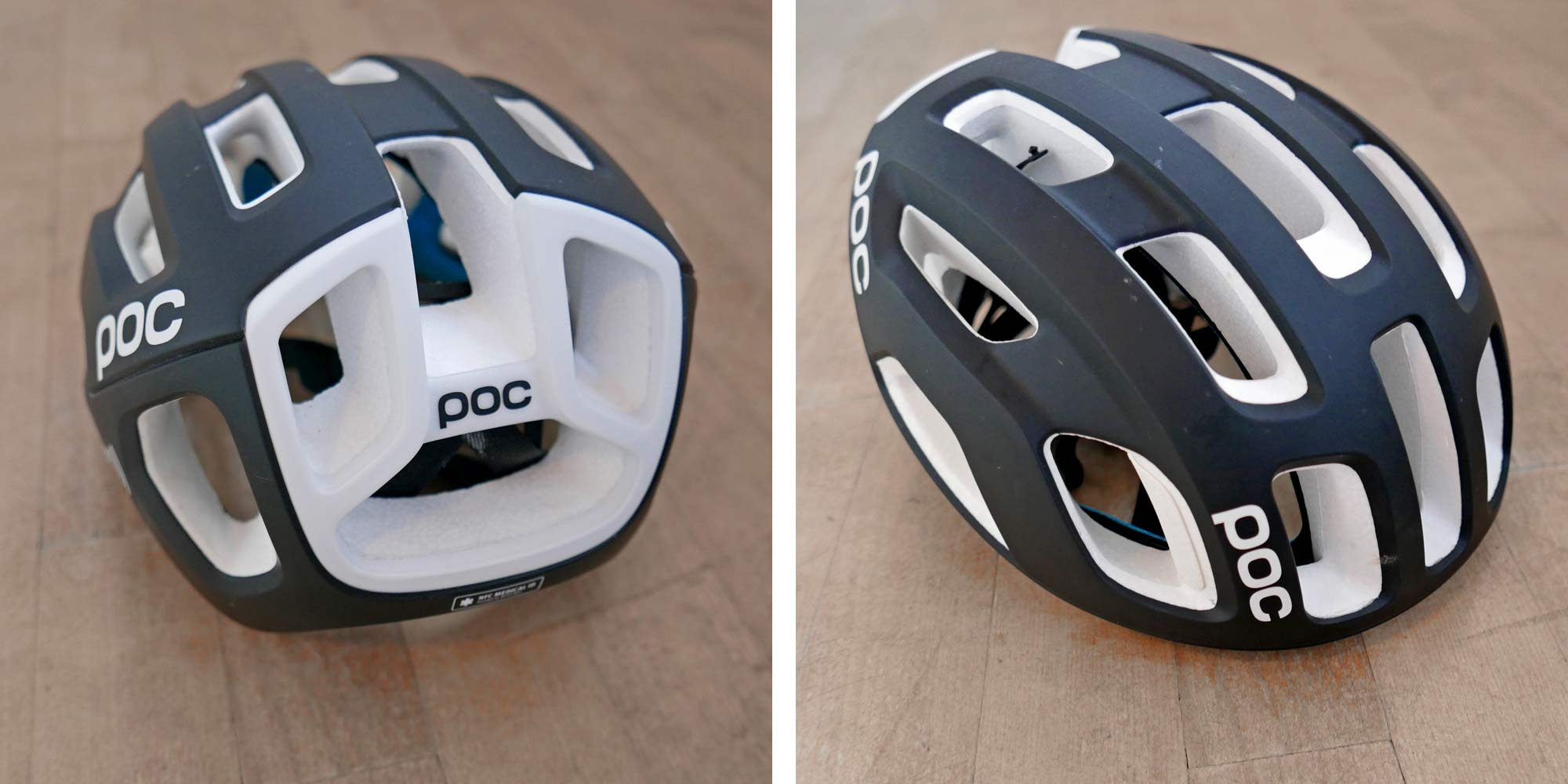We first saw POC’s latest NFC chip-enabled smart cycling helmets back at Eurobike. By simply molding a Near Field Communication chip under the shell, POC is hoping to improve rider safety by making vital health data available to first responders following a crash. Much like they did as early adopters of MIPS, POC’s first steps look poised to set a benchmark for the industry, ultimately making us all safe.
POC Ventral Air SPIN NFC smart, vented road helmet
 POC’s NFC helmets are set to hit the market in a couple of weeks, but I’ve been riding the Ventral Air NFC for three months now. And in that time, it has become my go-to for general road & gravel riding, especially when I am riding on my own or traveling abroad.
POC’s NFC helmets are set to hit the market in a couple of weeks, but I’ve been riding the Ventral Air NFC for three months now. And in that time, it has become my go-to for general road & gravel riding, especially when I am riding on my own or traveling abroad.
The POC Ventral Air SPIN NFC is essentially a standard Ventral Air SPIN lightweight, well-vented performance road bike helmet with the simple addition of the NFC Medical ID chip. POC calls it a helmet that can “speak for you when you can’t”.
The idea behind the NFC-enabled helmet, is to provide quick access for first responders to a cyclist’s key medical information, especially useful if the wearer is unconscious or unresponsive after an accident. Getting the right assistance quickly can be the difference between life & death.
And personally, as someone taking medication that first responders should be aware of, the idea of this information being available in the event that I cannot communicate is reason enough for this to be my first choice of a helmet whenever I ride alone.
Review: How to… using a NFC-enabled bike helmet
POC has worked with Swedish app maker My ICE Info for the free mobile app twICEme to make it easy to both enter your information and to read it. To use it, you simply download the free app, create a medical tag profile, and upload it to the helmet’s chip.
With the twICEme app you simply tap the screen to read, hold your mobile phone against the NFC Medical ID Tag logo for a couple of seconds, and it will find the data you have chosen to make available.
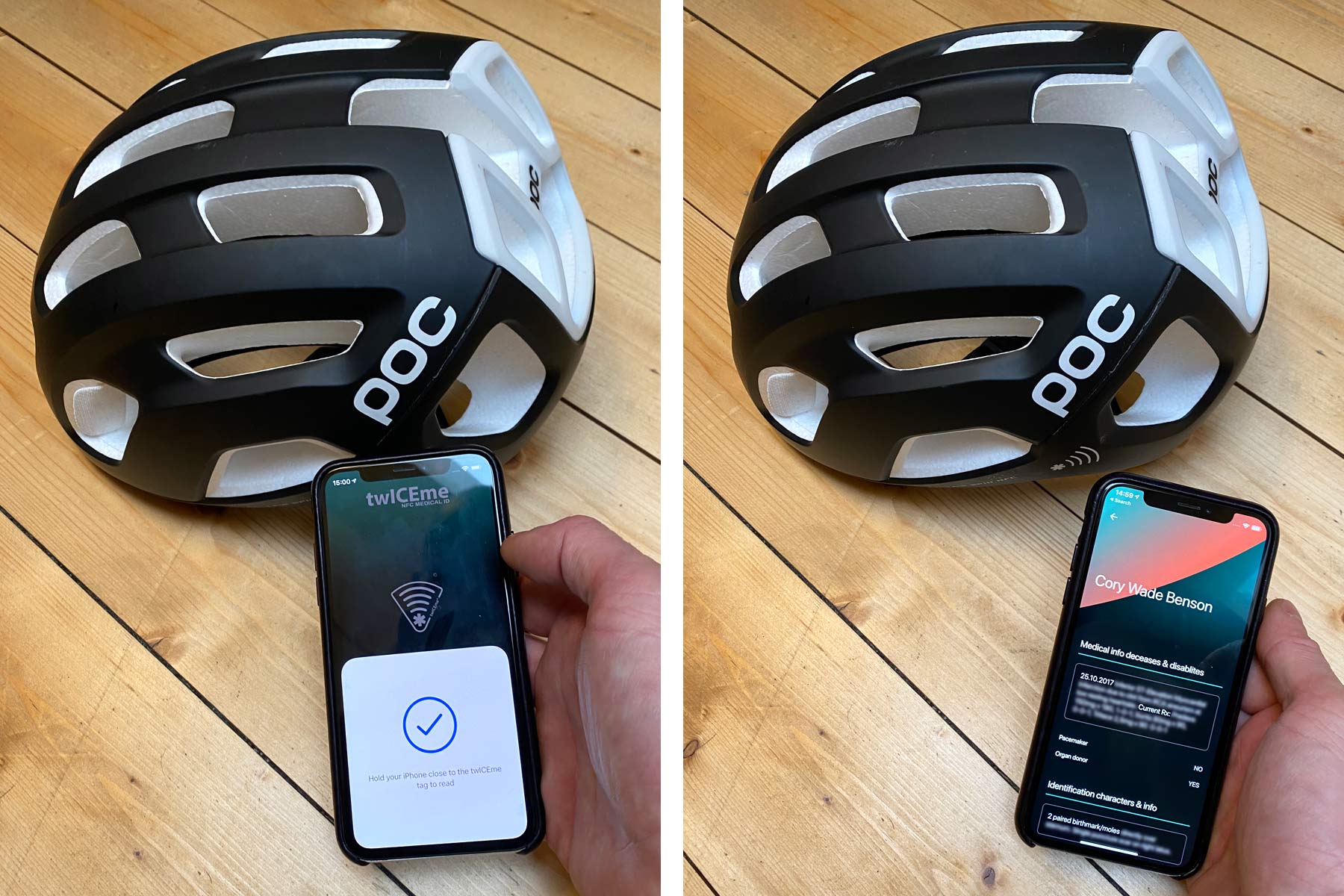 The app allows you to enter your key medical conditions/diseases/allergies/disabilities, plus identifying characteristics, personal document/passport/insurance ID, and emergency contact information. You pick what information you want to include.
The app allows you to enter your key medical conditions/diseases/allergies/disabilities, plus identifying characteristics, personal document/passport/insurance ID, and emergency contact information. You pick what information you want to include.
The helmet wearer’s medical information is stored locally on the embedded NFC chip, and that can be accessed with any NFC reader that comes within 20mm of the chip. That means essentially any Android smartphone or any iPhone since 2017, working through most standard mobile phone cases and not requiring an internet connection. You don’t need to have the twICEme app, but it makes the long text string of data easy to view.
There are potentially real personal data security concerns here. But just like the contactless chips in debit & credit cards these days, proximity & the time to download the data is key, so you should be aware of where you leave this helmet lying around.
While most first responders are currently not likely to pull out a smart phone to read a helmet chip as precious seconds tick by when you need emergency care, My ICE Info has already partnered with the International Commission for Alpine Rescue (ICAR) to promote the use of NFC chips to provide user medical data to mountain rescue first responders. With ICAR on board, they expect the NFC Medical ID Tag to be known & accepted more broadly amongst emergency professionals.
POC Ventral Air SPIN NFC – Tech details
The Ventral Air SPIN NFC also offers all of the safety & performance of the typical Ventral Air SPIN helmet. That means a lightweight, open design with deep internal ventilation channels, a unibody in-mold polycarbonate construction with EPS foam crash protection, and dial rear retention. It also gets POC’s SPIN (Shearing Pad INside) silicone pads that mimic MIPS rotational protection without the hot & heavy inner plastic liner.
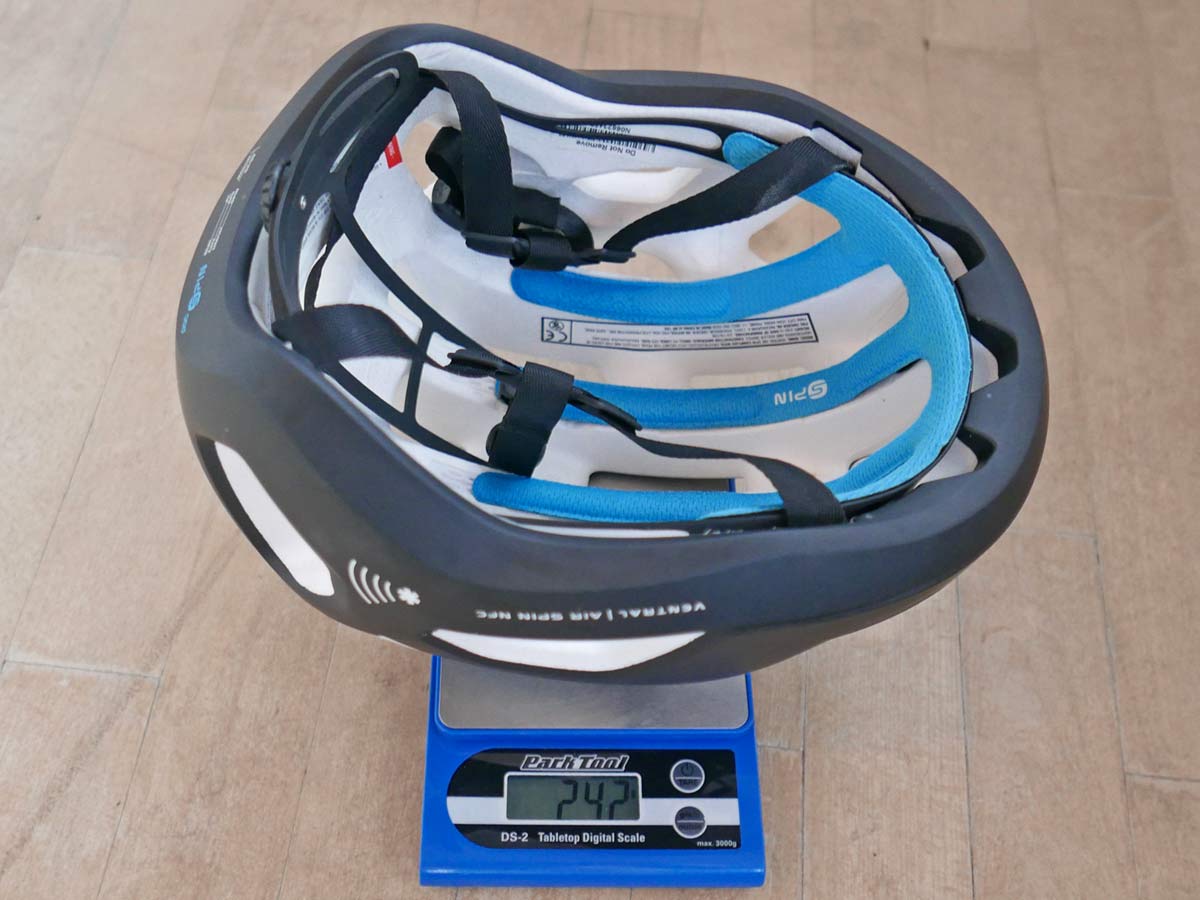 The NFC chip is embedded just under the polycarbonate shell of the helmet on the back left side, marked by the NFC Medical ID Tag logo. This symbol features a simple medical Star of Life logo with radiating lines denoting wireless communication, and is being shared with global rescue bodies to promote its adoption & use. The chip does not require a power source to store your data, and adds very little weight.
The NFC chip is embedded just under the polycarbonate shell of the helmet on the back left side, marked by the NFC Medical ID Tag logo. This symbol features a simple medical Star of Life logo with radiating lines denoting wireless communication, and is being shared with global rescue bodies to promote its adoption & use. The chip does not require a power source to store your data, and adds very little weight.
In fact, POC claims the same 230g for my EN-certified helmet, with the actual weight just 5% more at 242g on our scale.
Ventral Air NFC – Pricing & availability
The NFC version of the Ventral Air helmet comes only in matte black with white EPS foam for now, and is set to retail for $275 / 270€ (just 20€-$25 more than the standard version). It is anticipated to be available in approximately three to four weeks (mid Feb 2020) and is available for pre-order now through many retail channels. The same NFC Medical ID Tag tech is also available in the Tectal Race SPIN NFC mountain bike helmet, as well.
While currently the inclusion of my key medical & emergency contact data stored directly inside my helmet isn’t likely to provide a real safety benefit in most places that I ride, the fact that POC is pushing boundaries is worth noting & supporting. Much like the inclusion of RECCO reflector in MTB helmets, as NFC adoption expands to more markets than riding in the Alps, I will feel even more comfortable riding alone or in new places.
